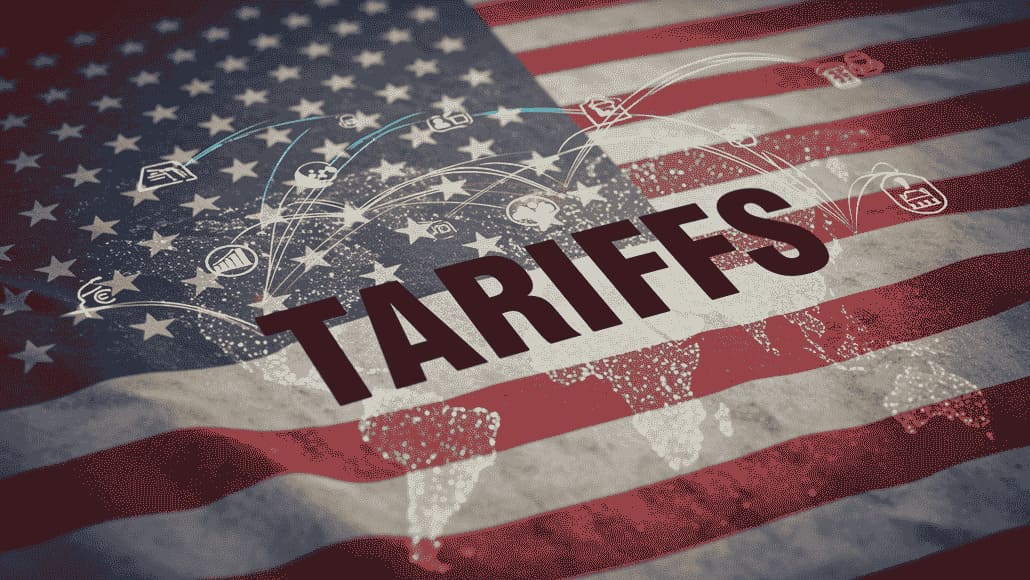On April 9, U.S. President Donald Trump announced a comprehensive 90-day suspension of the “reciprocal” tariffs, effective immediately at midnight; however, he did not provide any relief for China.
In a social media statement, Trump declared: “Based on the lack of respect that China has shown to the World’s Markets, I am hereby raising the Tariff charged to China by the United States of America to 125%, effective immediately. At some point, hopefully in the near future, China will realise that the days of ripping off the USA and other countries is no longer sustainable or acceptable.
Conversely, and based on the fact that more than 75 countries have called Representatives of the United States, including the Departments of Commerce, Treasury, and the USTR, to negotiate a solution to the subjects being discussed relative to trade, trade barriers, tariffs, currency manipulation, and non-monetary tariffs, and that these countries have not, at my strong suggestion, retaliated in any way, shape, or form against the United States, I have authorised a 90-day PAUSE, and a substantially lowered Reciprocal Tariff during this period, of 10%, also effective immediately.”
Steve Lamar, president and CEO of the American Apparel & Footwear Association (AAFA), expressed concerns about the ongoing unpredictability in trade policies. He noted that the current strategy continues to impose an untenable burden on imports from China, a key trade partner for the U.S. apparel industry.
Lamar warned that if these high tariffs persist, including those under President Trump’s Section 301, it could lead to increased prices for everyday clothing, shoes, and accessories. Furthermore, it would heighten costs for U.S. manufacturers reliant on specific materials and products sourced exclusively from China.
Lamar commented: “The on-again, off-again tariff policy is forcing companies to careen between chaos and costs. While we welcome this limited pause to give negotiators in the U.S. and dozens of trading partners a chance to hammer out sustainable outcomes, it is only a first step in a policy that needs to be more comprehensive, predictable, and durable if we want to encourage the kind of investments that will support more U.S. jobs.”
“It is our hope that this limited pause can be extended to all countries so that U.S. companies, now caught in the crosshairs of a frenzied trade war, can focus their energies on encouraging the U.S. and its key trading partners to negotiate an end to both U.S. and foreign trade barriers. We further urge the administration to work closely with Congress and all stakeholders so that we can forge a more durable trade policy based on a partnership of reciprocal trade, not fear of crushing tariffs,” Lamar added.
Meanwhile, the United States Fashion Industry Association (USFIA) voiced its concerns over the escalating trade conflict with China. The association stressed that trade wars result in no winners and expressed hope that the recent reciprocal tariff increases would facilitate serious discussions aimed at addressing the ongoing trade disputes between the U.S. and China.
USFIA stated: “We are relieved that President Trump is pausing the onerous reciprocal tariffs on most of our trading partners. Ninety days offers an opportunity to hold serious discussions about trade barriers and craft substantive market opening agreements. Our motto at USFIA is ‘Fashion Made Possible by Global Trade’ and we know that fashion benefits from the opportunity to source across the globe.”
Recently, AAFA endorsed The Trade Review Act of 2025, introduced by Senator Maria Cantwell (D-WA), aimed at restoring certainty in U.S. trade policy and reaffirming Congress’ constitutional role in trade matters.
Last month, AAFA expressed concerns regarding the U.S. Department of Labor’s (DOL) decision to terminate all contracts with its Bureau of International Labor Affairs (ILAB). The current focus on tariff suspension and trade policy highlights the need for a stable framework that allows U.S. businesses to thrive amidst global competition.

































